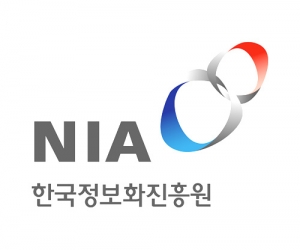
National Information Society Agency (NIA) is at the forefront to drive the nation’s informatization by constructing an e-government where government functions and services are for the general public. The organization has paved the way for the nation to advance into an IT powerhouse in the world by conducting such projects as the construction of the national telecommunications network backbone and now it has its sights on an ultra, high-speed network and Broadband convergence Network (BcN).
Korea IT Times sat down with the President of the National Information Society Agency, Kim Seang-tae (kimst@nia.or.kr), to listen to what NIA is doing and what kind of major goals and strategies they have for 2011.
Q. Could you tell us about NIA's 2011 major goals
A: NIA's first goal is to discover policies and projects that can actually enrich the lives for the Korean people. Though Korea has built a world-class e-government system, public awareness of IT as a means to address the nation's current issues such as security, diseases and Internet addiction disorder. To preemptively tackle current issues and suggest future-oriented alternatives through informatization, NIA will proactively search for informatization policies and projects to achieve nation-wide informatization and enhance the brand image of NIA.
Second is to spread IT-based donations, NIA will work towards a fair society, shared growth and closing the gaps. NIA, which has been recognized as an institution with high customer satisfaction for two straight years, will reinforce communication with stake holders and set up a life-time customer support system based on NIA's professionalism. NIA will launch the IT-based donations and sharing activities to be selected as an institution with high customer satisfaction once again.
NIA's third goal is to expand the achievements of sustainable management, which happen Under the slogan of Greater Change! Happier NIA!, NIA will create a sound labor-management culture that adheres to government standards and will become a family-friendly institution. NIA will observe government standards such as making public institutions advance and a performance-based pay system. And NIA will set up a management system that lives up to the standards of a quasi-government, non-profit agency.

Q. What are the core strategies for NIA in 2011
A: This year, NIA will develop detailed strategies to realize a smart Korea and an implementation plan to push for a smart Korea in earnest. To that end, NIA will promote the Smart Gov and Smart Work, build IT-based knowledge, information infrastructures and lay barrier-free smart work foundations for the disabled. Also, NIA will sort out large-scale projects that will come after ultra, high-speed networks and Broadband convergence Network (BcN) and provide support for large-scale SOC infomatization projects. And NIA will come up with ways to reinforce national competitiveness through accumulating future capital and will preemptively solve legal issues.
NIA will suggest a detailed IT-based solutions to the nation's current die-hard issues that threaten national security, such as mad cow disease, FMD (foot and mouth disease) and Internet addiction. To that end, NIA will establish a plan to utilize the public sector's national video and information resources. To make Korea a safer nation, building wireless SOS communications networks and prevention-first animal health care systems will be given priority. Also, NIA will build a national database of national disaster responses, national safety information and provide the database to the public.
Moreover, NIA will push ahead with an IT-based donation program called "Korea Smart Angels" and draw a roadmap to close the information gap among government departments and agencies. In addition, NIA will help North Korean defectors, the disabled, multicultural families, and promote shared growth between large companies and SMEs. By clearly stipulating copyrights and other rights in building a national database, NIA will lay the foundation for a nation-wide hub for knowledge sharing. On top of that, NIA will implement company-friendly policies such as making improvements in the system for placing and taking orders and submission of digital draft proposals. Also, NIA will provide advanced technologies to other nations, who want to adopt a standard framework. Besides, NIA will offer counseling services to address Internet addiction disorder and build a governance system that facilitates cooperation between the private and public sectors.
On top of that NIA's biggest strength lies with its professionalism. Based on such professionalism, NIA will ratchet up cooperation with the central government, municipalities and export-related or global institutions. And by continuously innovating management, NIA, as a public institution, will lead by example offering an advanced, sustainable management model. Through IT Official Development Assistance (ODA), NIA will scale up efforts to informatize developing nations and teach other nations our knowhow and experiences with informatization (frameworks, capability, EA and supervision) to bump up IT contribution to the international community.
Q. As Korea's e-government system is ranked first in the UN's 2010 e-government evaluation, Korea has continued to exercise its global leadership in e-government. What is NIA's plan to efficiently move forward "smart, e-government" in 2011
A: Korea, is ranked first in the UN's 2010 e-government evaluation, has pushed for a government-wide, e-government system since 2000. However, now is the time to work towards smart e-government to launch a proactive, preemptive response to changes in information paradigms and social changes and to overcome the limits of the existing e-government system. In other words, NIA has to draw up a leading strategy, not a catch-up strategy, to launch preemptive responses to changes in informatization paradigms such as rapid expansion of the mobile environment and IT convergence. In addition, Korea's demographic changes, brought on by low childbirth rates and population aging, have to be addressed. In January of this year, the Ministry of Public Administration and Security and NIA established an implementation plan to build a smart e-government system. The vision is to build the world's best smart e-government system that is people-friendly with core strategies that are "openness", "integration," "collaboration" and "green." The plan for smart e-government contains the following five agenda items:
① realization of the world's best mobile e-government system
② building a safer, warmer, trust-based society
③ promotion of smart work
④ provision of communication-based, custom-made services to the public
⑤ building infrastructures for a e-government system with strong fundamentals.
Contractors to work on e-government support projects, which expedite cooperation among different government departments and agencies and promote information sharing, will be chosen in the first half of this year. The e-government support projects will be implemented in a way that could help carry out implementation strategies for a smart e-government system and agendas.
As for the rate of using e-government services, through promoting e-government services, adding more user-friendly services and switching to mobile, SNS-based services, access to e-government services will be made more convenient. NIA will strenuously work to raise the rate of using e-government services by creating a user-friendly e-government system.
<The rate of using e-government services>
|
Dec. 2008 |
Dec. 2009 |
Jun. 2010(first half) |
|
|
Public awareness |
92.7 |
92.5 |
93.3 |
|
The use rate |
66.7 |
60.2 |
61.8 |
|
Satisfaction |
60.2 |
61.4 |
63.3 |


